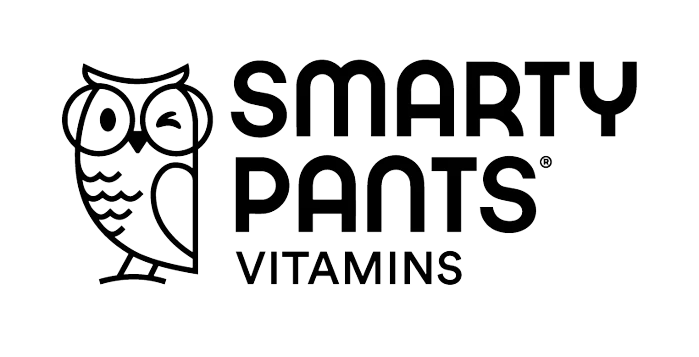Whether you’ve decided to breastfeed your baby or you want to learn a bit more before you get started, there are a few things that are very good to know when going through the experience of breastfeeding. We spoke to our Director of Nutrition Science, Aletta Mayorga, about some of the best tips for breastfeeding moms — as well as some facts to know if you’re new to it all.
Reasons to Breastfeed
If you’re unsure whether breastfeeding is right for you and your baby, it might be helpful to consider some of the wonderful benefits of it. On an emotional level, breastfeeding can help you bond with your baby in a special way. Importantly, health-wise, breast milk will provide your baby with nutrients that are essential to their development — including proteins, fats, carbohydrates and micronutrients — and drinking it will help support your baby’s digestive and immune systems.
Can I Supplement Formula While Breastfeeding?
Absolutely! If there isn’t enough breast milk available for your baby, supplementing with formula so that they get all the nutrients they need is a great solution. If you’re unsure how much feeding your baby needs, make sure to talk to a pediatrician before deciding to supplement with formula.
How Long Does the Average Woman Breastfeed for?
It depends! It’s typically a good idea to exclusively breastfeed your baby for six months, then to slowly integrate other foods into their diet to complement the breast milk for another six months. However, Aletta explains that breastfeeding your child until age two or even longer holds many benefits for mom and baby — and the World Health Organization agrees.
How Often Should I Pump?
How often you should pump breast milk (or indeed the decision to pump at all) depends on your situation — for example, you can choose to breastfeed some of the time, and use bottles the rest of the time. If you’re working away from home and unable to breastfeed, you should pump every three to four hours, according to Healthline. Each pumping session should last around 15 minutes.
What Does Breastfeeding do to My Body?
Breastfeeding uses up lots of energy and nutrients. That means that, while you’re breastfeeding, you’ll need to eat approximately 500 extra calories a day, as well as paying close attention to the nutrients you’re taking in daily. You’ll need both more macronutrients (protein, fat and carbs) and more micronutrients (vitamins and minerals) in order to provide your baby with the nutrition they need, and keep your own energy up and your health in tip-top. If you’re not able to get adequate nutrition through food alone, your doctor may recommend supplements.
Are Breastfeeding Vitamins Necessary?
While not necessary, breastfeeding vitamins are a good idea. As we mentioned above, breastfeeding uses up a lot of energy — as does being a new parent generally! — and supplements can go a long way towards making sure you’re getting all the nutrients you need to stay healthy while also taking care of your child. SmartyPants offers gummy Prenatal formulas with premium nutrients before, during and after your pregnancy journey!
Can I Drink Coffee or Alcohol While Breastfeeding?
If you choose to drink alcohol while breastfeeding, you need to wait a little before breastfeeding so that the alcohol doesn’t pass into the breast milk you’re feeding your baby. If you consume a single unit of alcohol (one beer, or one glass of wine), you should typically wait around two hours before breastfeeding — however, you should check with your doctor for more specific guidelines. You can drink coffee or caffeinated drinks in moderation while breastfeeding, though babies under six months old may be sensitive to traces of caffeine in breast milk. If your baby becomes irritable from drinking breast milk after you’ve consumed caffeine, wait a bit longer after consumption to breastfeed, or check with a doctor to make a plan that works for you and your baby.

What Essentials Do I Need While Breastfeeding?
You can quickly get thirsty and hungry while breastfeeding, so make sure you always have plenty of water and snacks on hand. You don’t need anything else per se, but there are items you can buy that will make breastfeeding more comfortable for you. These include breastfeeding pillows, nursing or breast pads to soak up any excess milk, and a breast pump if you have decided to pump as well as breastfeeding.
Breastfeeding With Breast or Nipple Pain
Breastfeeding usually involves some amount of discomfort. Your nipples may hurt in the first minute after your baby latches on; however, they should stop hurting after that — if they don’t, you may need to reposition your baby. A lactation consultant can help you get your baby to latch on correctly. Equipping yourself with nipple creams or lotions is also a good idea to help ease any discomfort you feel from regular breastfeeding. If you feel any consistent breast pain or if you experience any flu-like symptoms, you should see a doctor — these could be signs of an infection.
Some Breastfeeding Basics
If you’re new to breastfeeding, we know it can seem like a daunting concept to wrap your head around — but we promise it doesn’t have to be. Let us leave you with some wise words from Aletta to help you on your exciting new journey. “Be patient. It is not always easy, but it is so worth it,” she says. “If you have difficulties, contact a lactation consultant early, who can be a tremendous asset for a successful breastfeeding journey. Focus on nourishing your body well and, while everyone will be full of advice on how to care for your newborn, find what works best for you and your baby.”


